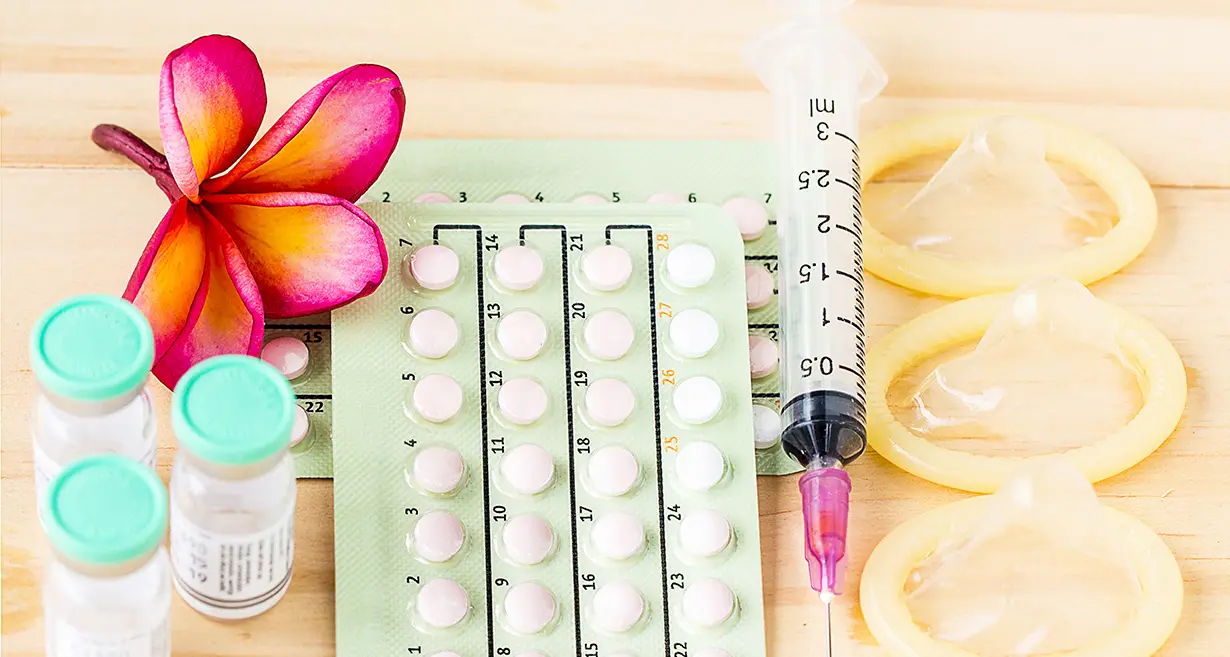
A normal menstrual cycle includes the release of an egg from one of your ovaries during ovulation. If the sperm does not fertilize the egg, the changing body hormones signal the body to shed blood and tissues that line your uterus. This building is also known as a period lasting about five days, and this monthly cycle repeats itself. However, some women experience irregular periods or abnormal uterine bleeding for several reasons, including lifestyle factors or medical conditions. All irregular periods are delayed menstruation that shows irregular uterine bleeding like bleeding or spotting between periods, bleeding post-sexual intercourse, heavy bleeding during periods, and bleeding that lasts longer compared to normal and bleeding post-menopause. Irregular periods should not be overlooked as it can indicate a severe health problem. It is best to consult the expert gynecologist if your regular cycle gets delayed above 7 days, if your period lasts for more than 10 days, or if there is any other issue. If you seek the best gynecologist in Delhi, visit Queen’s Gynecology to get yourself checked and treated.
Related Blog: Irregular Periods Management in Women Suffering From PCOS
In this Article
Causes of irregular periods
Irregular periods are a common condition, and doctors consider a person to have this condition if their cycles are longer than 38 days or if each cycle length varies by more than seven to nine days. There are many possible causes of delayed menstruation or irregular periods, including stress, uterine cancer, uncontrolled diabetes, pregnancy, etc. What causes irregular periods is discussed in detail below:
- Uterine polyps and uterine fibroids
These are the growths that attach to uterine walls and lining of the uterus, leading to heavy periods and intense pain.
- Endometriosis
It’s the condition that causes endometrial tissue to grow outside the uterus and which causes abnormal bleeding and severe pain with periods.
- Birth control pills
Many hormonal pills can lead to irregularities, like progestin-only medications cause bleeding in between periods.
- Pregnancy
During pregnancy, the body stops ovulating, temporarily stopping on periods.
- Stress and smoking
Some lifestyle factors like stress and smoking have a significant impact on menstruation. Stress is strongly linked with abnormal menstrual cycles, and smoking leads to premature menopause.
Related Blog: 11 Harmful Effects of Smoking on Fertility and Reproductive Health
- Obesity and weight change
The extra body weight makes excess estrogen, leading to changes in periods and causing lighter and heavier bleeding. Significant weight changes also disrupt menstruation as your body does not get enough calories and cannot produce hormones that sustain the menstruation cycle.
- Intense exercise
Resistance training and strenuous exercise cause irregular periods in female athletes, especially as it causes a decrease in luteinizing hormones.
- Pelvic inflammatory disease
It is another common cause of period irregularities as it is a sexually transmitted infection in reproductive organs. It leads to inflammation and irregular menstruation.
- Polycystic ovary syndrome:
About 15 percent of women with irregular periods have PCOS, in which an ovarian cyst is formed, leading to hormonal imbalance and irregular periods.
- Premature ovarian insufficiency,
Also known as POI, is a condition in which the ovary steam works at 40 years of age and causes amenorrhea. People with this condition experience action periods and even have chances of becoming pregnant.
- Uncontrolled diabetes
It is the most common cause of irregular periods, as high blood sugar levels alter hormone levels and change the menstrual cycle.
- Medications
Some medications can cause irregular periods, like long-term use of steroids, which cause heavy or irregular periods. Blood-thinning drugs also cause heavy bleeding.
Symptoms of irregular periods
Regular periods are vital to a woman’s reproductive health; however, many women experience irregular menstrual cycles, which can disrupt their health and is a matter of concern. However, irregular periods symptoms vary from person to person, but some common signs include:
- Missed periods or absence of menstruation
- Irregular or unpredictable periods with longer or shorter cycles than normal.
- Heavy or prolonged menstrual bleeding that causes severe cramps.
- Light or scary periods that may last for a few days only
- Bleeding between periods or spotting
- Menstrual flow changes varying levels of blood loss
- Difficult in conceiving or infertility
Symptoms of hormonal imbalances like acne, weight gain, and excessive hair growth
While some symptoms may be normal and are not concerning, there are many symptoms of delayed menstruation that you should be worried about and get checked if they persist. So consult your gynecologist when you experience any of the above-listed symptoms.
Possible Treatments
Irregular periods of treatment depend upon their underlying causes. A gynecologist will first diagnose the underlying cause of irregular periods as it may vary as per individual circumstances. The expert will use many diagnostic options to track your cycle length, last period, and normal period flow. And also recommend some tests to diagnose the root cause, like pelvic ultrasound to check fibroids, PAP test, blood test for vaginal cultures, etc. after the cause is determined, they will start your treatment that will depend upon the cause; they may recommend an intrauterine device or nonsteroidal anti-inflammatory medications for heavy bleeding. If periods are absent, they may recommend oral contraceptives. They may include using the pad on the abdomen and injecting hormone therapy to treat painful periods. In some cases, gynecologists at Queen’s gynecology can also recommend surgical removal of fibroids, hysterectomy, or blocking blood flow to the uterus.
Bottomline
Understanding the causes, recognizing the symptoms of delayed menstruation, and exploring available treatment options are vital steps toward maintaining a healthy menstrual cycle. Slight delays in periods are generally fine. Some women can predict their period to the exact day, while others cannot. It is better to visit a gynecologist in Delhi if you notice a sudden change in timings between cycles or the duration of your period, especially if it’s significant; however, it does not always indicate a problem, but it’s best to get it checked on time. If you experience irregularities in your menstrual cycle and experience irregular periods, then you may consult an expert gynecologist at Queen’s Gynecology in Delhi. They are the experts who will help identify and develop a personalized treatment plan to stay healthy on a regular basis. Regularity and ensure excellent optional reproductive health.
FAQ’s
Having irregular periods is common, but frequent or very prominent changes in periods can indicate any underlying issues. If you have an irregular period one or two times, that’s probably fine. But, if you notice that you continually experience irregular periods or delayed menstruation, it’s better to get evaluated by an expert gynecologist to diagnose the underlying reason and get treated on time.
There is no need to worry about a few irregular periods a year. Gynecologists recommend having a check-up if you have less than eight periods a year, if you go three months without a period if your periods happen less than 21 days apart, and if your periods last longer than 8 days.
A delay of 10 days is not fine and may require evaluation. Hormone imbalances and health conditions are the most common causes of irregular, late, or delayed periods, so visiting an expert gynecologist to check and treat yourself on time is best.

























































































































































































